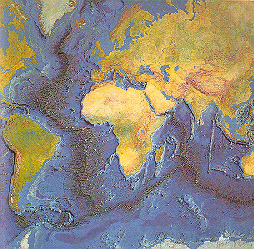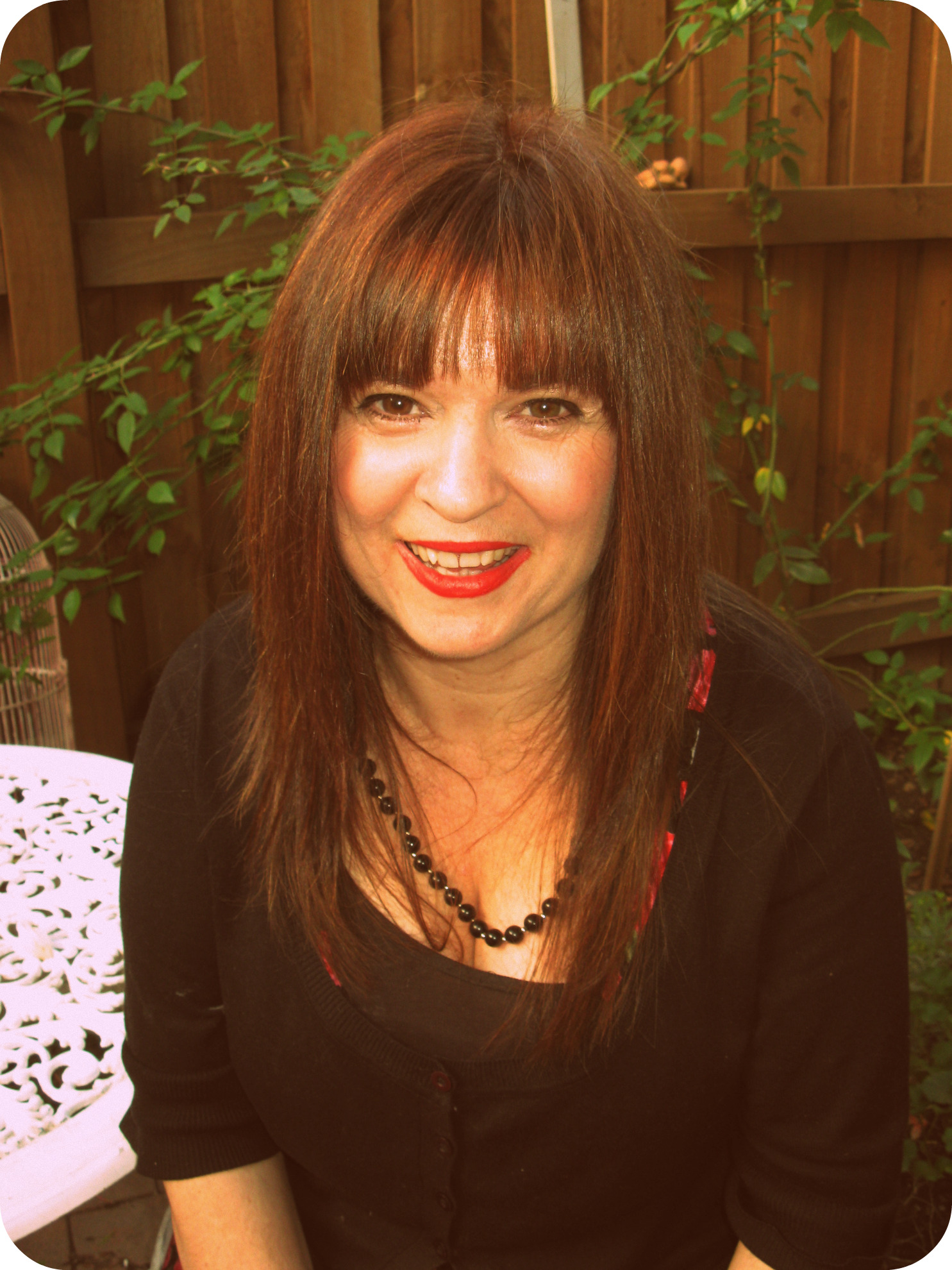I was going to interview myself today, but my Facebook fans asked such good questions that I've given them full rein.
Ian Irvine: This may seem a bit of a lol, but I'm doing an interview with Ian Irvine for my blog and I need some really curly questions, because I've heard he's a slippery customer. Tricky questions would be much appreciated; I really want to put the scoundrel on the spot.
Ami: Have you developed multiple personalities or something???
 Ian: Ha ha, yes I have, says Ian. No I haven't, says Ian. I don't understand the question, says Ian. Are we there yet? says Ian. Need we go on, Ami? chorus the Ians, sweetly.
Ian: Ha ha, yes I have, says Ian. No I haven't, says Ian. I don't understand the question, says Ian. Are we there yet? says Ian. Need we go on, Ami? chorus the Ians, sweetly.
Alison: Who would you ask to finish your novels if you ever (heaven forbid) died before they were completed (e.g. Brandon Sanderson for Robert Jordan).
Ian: I have no idea, Alison. I don't know of any fantasy novelists who write the way I do, or about the kinds of things I write about. But maybe someone else does. I might have to throw that one back to my Facebook page and see if anyone comes up. In the meantime, i'll try hard not to die.
John: Or would you actually want someone else finishing them off in that situation?
Ian: To be honest, John, I don't think I'd want anyone finishing off a series of mine. Perhaps I'm a control freak. But I think the story would end up very differently to the way I'd imagined it. But then, since I've been so inconsiderate as to die in the middle of a series, instead of waiting until the story is completely wrapped up, I guess I can't complain. I'd certainly want to see it finished rather than just left hanging ...
John: Who is your favourite (or favourites if you can't choose one) of the characters you've created?
Ian: It changes all the time. At the moment I'd say it's Tali, the slave girl from Vengeance who, when just a little girl, saw her mother murdered and some mysterious object taken from her. Now she's 18, she's full of a burning rage and an utter determination to see justice done to the killers. I've spent a long time inside her head and really like her. I also like Tobry, from that story, because he's scarred, reckless, thinks the whole universe is a joke, yet is utterly loyal to his friends. But at other times it can be any of my heroes or heroines, even the alien Ryll from the Three Worlds, or Useless Ike from Grim and Grimmer.
Renee: If there was one thing you had to change about your favourite character what would it be?
Ian: Depends on the character, Renee. If Tali, I think I'd make her a little bit less nice (not that she's completely nice; she has her flaws) and a lot more conflicted about every aspect of her life. Make everything she does, and every choice she makes, a struggle between incompatibles. She can have one or the other, but not both, and she HAS to choose.
Dusty: What character do you associate yourself with the most??
 Ian: Dusty, I suspect that would be Llian from The View from the Mirror. There's a lot of me in most of my characters (especially the evil ones, glee, glee! says the bad Ian) because I'm the only person I know, or can know, from the inside. But I think in Llian, because he was one of my first characters, it's closer to the surface. Pity he's such an idiot at times.
Ian: Dusty, I suspect that would be Llian from The View from the Mirror. There's a lot of me in most of my characters (especially the evil ones, glee, glee! says the bad Ian) because I'm the only person I know, or can know, from the inside. But I think in Llian, because he was one of my first characters, it's closer to the surface. Pity he's such an idiot at times.
Deborah: Why did Ian decide to write fantasy, other than any other genre? What does family think of his novels? Does he envisage that he will still be writing them when he is in 70s? Does Ian believe that the dark side of his personality is expressed in his evil characters?..... (will stop for now,......)
Ian: Why fantasy, Deborah? Because that's what I most enjoyed reading back in the far-off days when I began writing. And though I read far less fantasy these days, I still love it, and especially love writing it.
What does my family think? See my sister Kathy's reply, below. I come from a large family, and so does my wife, and most of the people in our families love books and reading. They're very supportive, and constantly talking about my books to others, and rearranging them in bookshops so they face out, etc.
- Kathy: Yes Deborah, family think he is awesome, totally talented, amazingly intuitive, and sensitive to the needs of his characters. Appreciate that he can poke fun at himself and has remained level headed throughout. Love his wicked sense of humour and his imagination. I also hope he will be writing for many years to come. :-)
- Ian: And I blush easily, and often.
When will I stop writing? I certainly hope to be still writing in my 70s, and even in my 80s should I live that long. Most of the people in my family live to ripe and reasonably healthy old age, so if I have that good fortune I'll keep writing.
The dark side of my personality? What are you talking about? What dark side? All 27 of my personalities are glowing with light – 'Hey, what about me?' says evil Ian. 'Glmph!' He's bound, gagged and thrust under the table out of sight. 'Now, where was i ...?'
Traci: Who would Ian turn gay for? (Weeeelll, you did ask for tricky questions & there was no specifications on the questions being 'work' related).
Ian: Apart from Bridget Jones, and Elizabeth Bennet from Pride and Prejudice. But wait, that wouldn't be turning gay, would it? I guess no one.
Sue: Ian, can you ask Ian for me... does he believe in in life forms beyond earth and how did life on earth begin? Thanks Ians.
 Ians: Well, Sue, there are a few hundred billion galaxies in the visible universe, and each galaxy could have hundreds of billions of stars, and most of those stars could have planets. And of course, there could be billions of universes apart from our own. So the chances of there not being life out there somewhere seem implausibly remote to me. Yes, i do believe there's life out there. Intelligent life is another matter; i don't think it evolves very often and perhaps doesn't last long when it does, but even so, I reckon it exists somewhere.
Ians: Well, Sue, there are a few hundred billion galaxies in the visible universe, and each galaxy could have hundreds of billions of stars, and most of those stars could have planets. And of course, there could be billions of universes apart from our own. So the chances of there not being life out there somewhere seem implausibly remote to me. Yes, i do believe there's life out there. Intelligent life is another matter; i don't think it evolves very often and perhaps doesn't last long when it does, but even so, I reckon it exists somewhere.
How did life on Earth begin? Probably in the rich soup of the primordial oceans. It's possible that it could have evolved elsewhere and Earth been seeded with primitive life forms which then evolved here, but that doesn't seem nearly as likely to me. Space is a hostile place for life compared to a protected ocean.
Brian: Do you think the world will end in 2012, if so, are you a believer in he zombie apocalypse or just the plain old destruction of the planet?
Ian: No, I don't, Brian. I can't say I'm a great fan of zombies, though a zombie apocalypse does have a certain ikky charm. I don't think the planet is going to be destroyed any time soon, unless there's a nearby supernova. Earth is pretty resilient. Of course, that doesn't mean we can't make it unsuitable for a vast range of advanced life, including ourselves.
Marta: Why do some writers use a pseudonym to write different books. Is there a particular reason for that because sometimes it can get confusing if your favourite author writes under a pseudonym and you don't know about it. You miss out on reading those books unless you accidentally come across it.
Ian: Marta, if an author is well known for a certain kind of books (say, fantasy) but wants to write something completely different, say, crime or thrillers or romance, they often use a pseudonym to avoid confusing readers and booksellers (otherwise booksellers will often shelve their books in the wrong place). But also, if an author's first book or two have gone really badly, bookshops aren't going to order many of the next book, because they always order based on sales of the last book by that author. It may not be possible to get published at all unless the author changes their name, which wipes the slate.
Danny: Would you ever consider taking on a protege... What would your code names be?
Ian: Do you mean a co-writer, Danny? No, I don't think so. I just want to write my own books in my own way.
Ian: That's a continent-sized question, Cassandra. If I really needed to update any of my books, I imagine I'd change many things, and I'd certain cut out a lot of verbal flab, when I did the revised editions of the 3 Human Rites eco-thrillers. But if I'm rewriting old books, I'm not writing new ones, so it's not the best use of my time.
Mitchell: Have you ever had a thought like this? About how strange things happen, when your going around the twist?
Ian: If I thought I was going round the twist, Mitchell, do you really think I'd post it on the internet? [Sidles off, twitching and laughing maniacally]
Thanks very much, Guys, great questions, as always.
- For more about me and my books: http://www.ian-irvine.com/
- To say Hi or talk to me about books and writing: http://www.facebook.com/ianirvine.author
- To follow me on Twitter: http://twitter.com/#!/ianirvineauthor
- My blog about the novels I write, and the writing life: http://ian-irvine.blogspot.com/







